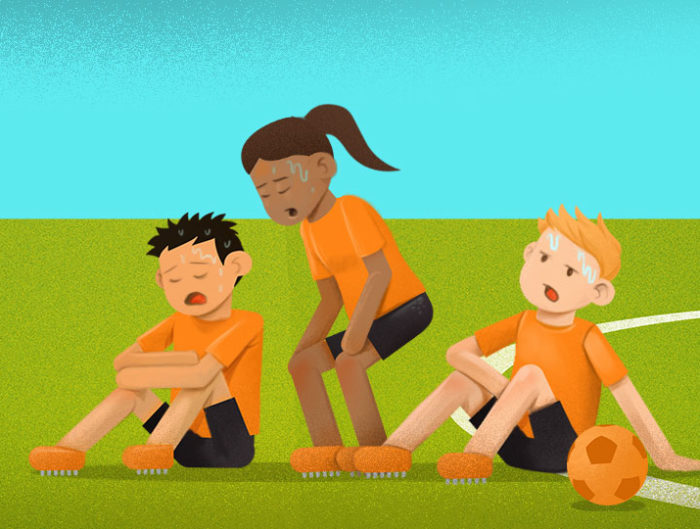Play is often seen as a frivolous activity, something that we do ‘just for fun’ or to pass the time. Yet, psychiatrist and founder of the National Institute for Play, Stuart Brown, offers us a different perspective, he shows us that play is much more than that.
Brown defines play as “a state of mind that one has when absorbed in an activity that provides enjoyment and a suspension of sense of time. And play is self-motivated so you want to do it again and again.”
In Brown’s view, play is not only an integral part of human development, learning, and creativity – play is a basic human need for all of us to thrive. In fact, play is an essential ingredient for our overall well-being and growth as human beings.
If play is more than just fun, then what exactly is it?

Play is a basic human need.
Play is not just a luxury, but a basic human need, just like food, water, and shelter. Play is an innate behavior that is present in all mammals, and it serves important evolutionary purposes. One of the primary functions of play is to help us acquire crucial skills like social interaction, problem-solving, and creativity, which are essential for navigating our environment and forming strong social bonds.
Play promotes the development of resilience, adaptability, and resourcefulness. It allows us to experiment with different approaches and strategies in a safe and low-risk environment, so we’re better equipped to handle the challenges and uncertainties that life throws our way.
Additionally, play has a significant impact on our emotional well-being. By reducing stress and promoting positive emotions, it can enhance our overall health, improve our immune function, and even increase our lifespan.

Play is essential for brain development.
Research studies have made it clear that play is not just a fun activity, but a vital factor in enhancing brain development and improving cognitive function, particularly in children. Through play, children actively learn and create connections between different areas of their brain, which helps to strengthen neural pathways and improve their problem-solving abilities.
On top of that, play is a critical component the development of emotional regulation skills in children, including impulse control and empathy. As children engage in play, they learn how to manage their emotions, handle stress, and understand the perspectives and emotions of others. These skills are not only crucial for healthy emotional and social development, but they also have a profound impact on a child’s overall well-being in life.

Play is not just for kids.
Play is not just for kids, but a crucial part of adult life as well. Through play, we can reduce stress, unleash creativity, and cultivate meaningful social connections. Numerous studies have shown that engaging in more playful activities can increase our overall happiness and satisfaction with life. It’s essential that we don’t limit play to just our childhood years. Instead, we should embrace and encourage play throughout our entire lives – and view it as one of our basic human needs.

Play has many forms.
Play can take many different forms, including physical play, imaginative play, social play, and play with objects. Each type of play has its own unique benefits for human development and well-being.
- Physical play, such as running, jumping, and climbing, helps to develop motor skills and coordination.
- Imaginative play, such as role-playing or storytelling with art, helps to develop creativity and problem-solving skills. It helps children explore different roles and scenarios and think outside the box.
- Social play, such as playing games with others, helps to develop social skills and empathy, playing with others, children learn how to communicate effectively, resolve conflicts, and develop friendships.
- Play with objects, such as building with blocks, helps to develop spatial awareness and fine motor skills.

Play is essential for success.
As researched by Brown, play is not just a “nice-to-have” activity, but rather a necessary component of leading a fulfilling life.
People who engage in play frequently and have a strong play history are more likely to be successful in their careers and relationships as they have developed the skills to adapt to change and tackle complex problems. Play should be an integral part of our lives, not only for its immediate benefits but also for the long-term benefits it brings to our personal and professional growth.
In short, play is much more than just a fun activity. It is a basic human need that is essential for our well-being and development. Through play, we acquire essential skills, knowledge, and experience that equip us with the necessary tools to navigate life’s challenges and complexities.
Play is an essential factor that impacts our daily experiences and interactions with life, whether it’s in our relationships with others, our participation in the workplace, school, or community. Play has the power to shape how we approach and engage with the world around us, and it’s important to recognize its significance in all areas of our lives. By embracing play, we can enhance our overall well-being, develop valuable skills, and ultimately, lead more fulfilling lives.
Youth sports programs have an opportunity to be a platform for youth athletes to engage in play.
Youth sports programs can provide an excellent platform for children to engage in play and reap the many benefits it offers. By participating in sports, children can engage in physical play, which can help them develop their motor skills and coordination. They can also engage in social play, where they learn how to communicate effectively, resolve conflicts, and develop friendships.
Sports offer a safe and structured environment where children can experiment with different strategies and approaches to problem-solving. They learn how to work as a team, take calculated risks, and develop their resilience and adaptability in the face of challenges and setbacks.
Moreover, youth sports programs provide an opportunity for children to experience a sense of achievement and build their self-esteem, which is essential for their emotional and social development. By setting and achieving goals, children can learn to value their own abilities and build a positive self-image.
It’s important to remember that youth sports programs should not solely focus on winning and competition. While healthy competition can be beneficial, overly emphasizing it can cause undue stress and anxiety, detract from the joy of play, and result in a negative experience for children.
Overall, youth sports programs can be an excellent way for children to engage in play and reap its many benefits. By providing a safe and structured environment for children to engage in physical, social, and imaginative play, sports programs can contribute to their overall well-being and development.

 FRA
FRA































